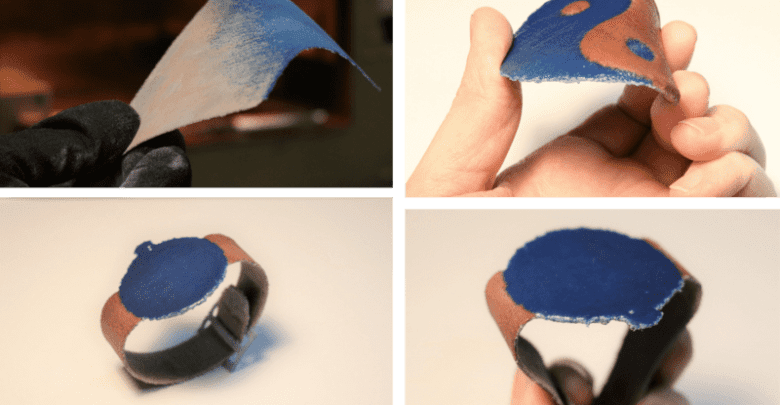Solvay, a Belgian chemicals company with a growing AM materials portfolio, has announced a new research agreement with Belgian 3D printing company Aerosint, which has developed a fascinating new approach to SLS that enables multi-material printing. Through the partnership, the companies will combine their respective expertise to develop a cost-effective SLS 3D printing process for high-performance polymers.
Presently, the use of high-performance polymers such as KetaSpire polyetheretherketone (PEEK) and Ryton polyphenylene sulphide (PPS) remains limited within the scope of powder-based additive manufacturing processes such as SLS. One of the biggest hurdles today is the cost associated with the wasted material powder. If, however, one were to create a cost-effective SLS platform for these high-performance materials, a range of new applications could be unlocked.
“SLS machines that can process high-temperature-polymers are carefully designed and assembled with sophisticated and expensive components,” elaborated Edouard Moens, Managing Director, Aerosint. “However, at present, there is a significant operating cost disadvantage during the build, which is the excessive waste of up to 90 percent of ‘used-but-unfused’ powder.
“Our patented spatially-selective, multiple-powder deposition system under development incorporates a non-fusible support material in each layer where expensive high-performance polymers are not required, thereby reducing material waste to very low levels.”
The Belgian companies have been working together for the past two years, with Solvay offering support to Aerosint for the development of its innovative multi-material SLS platform. Together, they hope the new AM process will create new opportunities in the AM industry.
“As with all innovative, ground-breaking technologies there are many challenges to overcome,” added Brian Alexander, Global Product and Application Manager for AM at Solvay’s Specialty Polymers global business unit. “One of them is to develop and fully optimize high-performance AM polymer powders for use at high temperatures alongside non-fusible materials in a multi-powder deposition process.
“Not only will this technology make 3D printing of high-performance polymers more affordable, it also will open up its enormous potential to become a competitive industrial process for AM system manufacturers in the medical, aerospace and automotive sectors.”
Source: 3dprintingmedia.network


